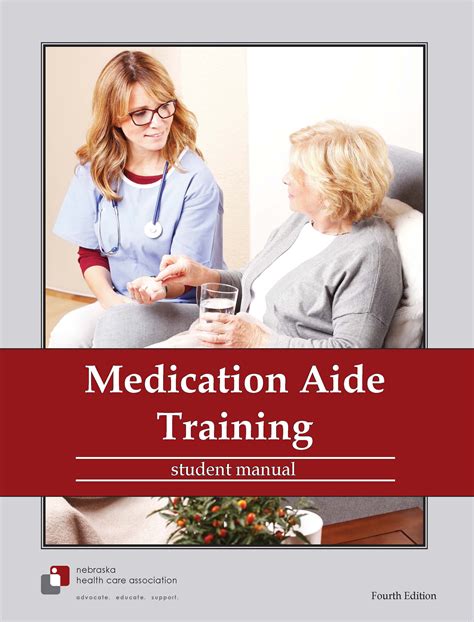Certified Medication Aide: Faq On Becoming One

Becoming a Certified Medication Aide (CMA) is a great way to start a career in healthcare. As a CMA, you will be responsible for administering medication to patients under the supervision of a licensed nurse. In this post, we will answer some frequently asked questions about becoming a CMA.
What is a Certified Medication Aide?
A Certified Medication Aide (CMA) is a healthcare professional who is responsible for administering medication to patients in a variety of settings, such as nursing homes, hospitals, and clinics. CMAs work under the supervision of licensed nurses and are trained to handle medication in a safe and effective manner.
What are the requirements for becoming a CMA?
To become a CMA, you must have a high school diploma or GED. You will also need to complete a state-approved medication aide training program and pass a certification exam. The requirements for the training program and certification exam may vary by state, so be sure to check with your state’s board of nursing for specific requirements.
What topics are covered in a medication aide training program?
A medication aide training program typically covers topics such as medication administration, medication safety, infection control, communication skills, and documentation. The program may also include hands-on training in medication administration and other clinical skills.
What is the certification exam like?
The certification exam for CMAs typically consists of multiple-choice questions that test your knowledge of medication administration, medication safety, and other related topics. The exam may also include a skills demonstration portion where you will be asked to demonstrate your ability to administer medication safely and accurately.
How long does it take to become a CMA?
The length of time it takes to become a CMA can vary depending on the state and the specific training program you choose. In general, a medication aide training program can take anywhere from 4 to 12 weeks to complete. After completing the training program, you will need to pass the certification exam to become a CMA.
What is the job outlook for CMAs?
The job outlook for CMAs is positive, with employment of nursing aides, orderlies, and attendants projected to grow 8 percent from 2019 to 2029, according to the Bureau of Labor Statistics. CMAs can work in a variety of settings, including nursing homes, hospitals, and clinics.
What is the average salary for a CMA?
The average salary for a CMA varies depending on the state and the specific employer. According to the Bureau of Labor Statistics, the median annual wage for nursing assistants, which includes CMAs, was $30,830 in May 2020.
What are the benefits of becoming a CMA?
Becoming a CMA can be a rewarding career choice. Some of the benefits of becoming a CMA include:
- Opportunities for career advancement
- Flexible work schedules
- The ability to work in a variety of healthcare settings
- The opportunity to make a positive difference in patients’ lives
How can I prepare for a career as a CMA?
To prepare for a career as a CMA, you can:
- Take high school courses in math and science
- Gain experience working in a healthcare setting, such as volunteering at a hospital or nursing home
- Research medication aide training programs in your state
- Prepare for the certification exam by reviewing study materials and taking practice tests
Conclusion
Becoming a Certified Medication Aide can be a great way to start a career in healthcare. By completing a state-approved training program and passing a certification exam, you can become qualified to administer medication to patients in a safe and effective manner. If you are interested in pursuing a career as a CMA, be sure to research the requirements in your state and prepare for the certification exam.
FAQs
What is a Certified Medication Aide?
A Certified Medication Aide (CMA) is a healthcare professional who is responsible for administering medication to patients under the supervision of a licensed nurse.
What are the requirements for becoming a CMA?
To become a CMA, you must have a high school diploma or GED. You will also need to complete a state-approved medication aide training program and pass a certification exam.
What topics are covered in a medication aide training program?
A medication aide training program typically covers topics such as medication administration, medication safety, infection control, communication skills, and documentation.
What is the certification exam like?
The certification exam for CMAs typically consists of multiple-choice questions that test your knowledge of medication administration, medication safety, and other related topics. The exam may also include a skills demonstration portion.
How long does it take to become a CMA?
The length of time it takes to become a CMA can vary depending on the state and the specific training program you choose. In general, a medication aide training program can take anywhere from 4 to 12 weeks to complete.
What is the job outlook for CMAs?
The job outlook for CMAs is positive, with employment of nursing aides, orderlies, and attendants projected to grow 8 percent from 2019 to 2029, according to the Bureau of Labor Statistics.
What is the average salary for a CMA?
The average salary for a CMA varies depending on the state and the specific employer. According to the Bureau of Labor Statistics, the median annual wage for nursing assistants, which includes CMAs, was $30,830 in May 2020.
